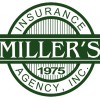Malloy Advisors is a free, no cost, no obligation resource for individuals aging into or eligible for Medicare and need guidance through the complex Medicare puzzle. Our goal is to provide clarity, reduce anxiety and help you choose the insurance or prescription plans that best fit your needs. Malloy's team of advisors works across the US with all major Medicare insurance carriers, provides free quotes and seamlessly guides you through the Medicare enrollment process.
Services
What kinds of health insurance are there?
There are essentially two kinds of heath insurance: Fee-for-Service and Managed Care.
Although these plans differ, they both cover an array of medical, surgical and hospital expenses.
Most cover prescription drugs and some also offer dental coverage.
These plans generally assume that the medical professional will be paid a fee for each service provided to the patient.
Patients are seen by a doctor of their choice and the claim is filed by either the medical provider or the patient.
There are essentially two kinds of heath insurance: Fee-for-Service and Managed Care.
Although these plans differ, they both cover an array of medical, surgical and hospital expenses.
Most cover prescription drugs and some also offer dental coverage.
These plans generally assume that the medical professional will be paid a fee for each service provided to the patient.
Patients are seen by a doctor of their choice and the claim is filed by either the medical provider or the patient.
Medicare is a fee-for-service health care program for seniors, in which the government pays health care providers directly for services that fall under Parts A and B of Medicare benefits (see below).
Medicare is divided into four categories.
This allows you to customize your personal coverage when shopping for a comprehensive policy.
Part A (hospital insurance): Covers hospital care, emergency services, nursing home care, home health services and hospice.
Part B (medical insurance): Covers medically necessary services and supplies used for diagnosing and treating medical conditions, and preventative services for illness prevention and/or early detection.
Medicare is divided into four categories.
This allows you to customize your personal coverage when shopping for a comprehensive policy.
Part A (hospital insurance): Covers hospital care, emergency services, nursing home care, home health services and hospice.
Part B (medical insurance): Covers medically necessary services and supplies used for diagnosing and treating medical conditions, and preventative services for illness prevention and/or early detection.
Chris, reaching out to say "Thank You" for all your help understanding the complex Medicare plans and navigating the time frames and coordination with social security, etc.
Not only did we find your advice direct, considered and thoughtful, we also found dealing with you in this endeavor so refreshing because you were so knowledgeable, patient, and accurate.
You translated everything into easy-to-understand information we could act on.
All has worked out well.
Ed Malloy confidently steered me through the Medicare options available to me in Massachusetts.
Not only did we find your advice direct, considered and thoughtful, we also found dealing with you in this endeavor so refreshing because you were so knowledgeable, patient, and accurate.
You translated everything into easy-to-understand information we could act on.
All has worked out well.
Ed Malloy confidently steered me through the Medicare options available to me in Massachusetts.
There are many kinds of life insurance, but they generally fall into two categories: term insurance and permanent insurance.
Term insurance is designed to meet temporary needs.
It provides protection for a specific period of time (the "term") and generally pays a benefit only if you die during the term.
This type of insurance often makes sense when you have a need for coverage that will disappear at a specific point in time.
For instance, you may decide that you only need coverage until your children graduate from college or a particular debt is paid off, such as your mortgage.
Term insurance is designed to meet temporary needs.
It provides protection for a specific period of time (the "term") and generally pays a benefit only if you die during the term.
This type of insurance often makes sense when you have a need for coverage that will disappear at a specific point in time.
For instance, you may decide that you only need coverage until your children graduate from college or a particular debt is paid off, such as your mortgage.
Because of old age, mental or physical illness, or injury, some people find themselves in need of help with eating, bathing, dressing, toileting or continence, and/or transferring (e.g., getting out of a chair or out of bed).
Living-sometimes referred to as ADLs.
In general, if you can't do two or more of these activities, or if you have a cognitive impairment, you are said to need "long-term care."
Long-term care isn't a very helpful name for this type of situation because, for one thing, it might not last for a long time.
Living-sometimes referred to as ADLs.
In general, if you can't do two or more of these activities, or if you have a cognitive impairment, you are said to need "long-term care."
Long-term care isn't a very helpful name for this type of situation because, for one thing, it might not last for a long time.
Reviews

Be the first to review Malloy Medicare Advisors.
Write a Review